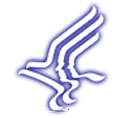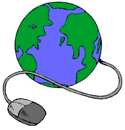|
|
 News
Articles News
Articles
Opportunities and Resources
Advice Corner
New Initiatives
|
News Articles
|
 |
More Paylines Are Online
New FY 2005 paylines are in from our budget office! Find paylines for small
grants, fellowships, career awards, AREA grants, and more at Paylines and Budget. We expect our R01 payline for research project grants to stay at the 18.0 percentile for the rest of the fiscal year.
|
 |
NIH Gets Tough on Ethics
In its new interim final rule published in the Federal Register, the Department of Health and Human Services is proposing sweeping changes to conflict of interest regs, which greatly curtail NIH employee participation in a wide range of previously acceptable outside-the-job activities.
Though "interim," the new rule has been in effect since February 3. It curbs consulting, serving on advisory boards, teaching, speaking, writing, and editing for "substantially affected" organizations. These include NIH-supported research institutions -- grantees and contractors, CRADA partners, health care providers and insurers, professional associations, advocacy groups, biotech and pharmaceutical companies, and similar organizations.
While staff may engage in teaching, speaking, writing, or editing without pay, they may not consult with a substantially affected organization or serve on its advisory board, even without compensation.
The new rule also bars NIH staff who file a public or confidential financial disclosure report from holding financial interests in any of the types of organizations listed above. Other staff have a $15,000 monetary cap on holdings. Certain awards from outside sources are also prohibited or given a monetary cap.
NIH is now developing a new system to oversee outside activities and assess the impact of the interim final regulations in the first year of implementation, including the ability to retain and recruit scientists.
For specifics on approval procedures and other details, read the full regulation Supplemental Standards of Ethical Conduct and Financial Disclosure or a three-page Summary of NIH-Specific Provisions in the Interim Final Rule as well as Questions and Answers. If you have questions about these documents, please call NIAID's ethics officer, Mr. Arthur Bennett, at 301/594-1660 or email bennettar@niaid.nih.gov.
Before determining whether to revise the rule, NIH will review public comments. Comment online before April 4, 2005, by emailing ethics@hhs.gov, using the subject "Comments on Interim Final HHS Supplemental Ethics Rule.'' Or write to:
Office of the General Counsel
Attention: Linda L. Conte
Ethics Division, Department of Health and Human Services
Hubert H. Humphrey Building, Room 700-E
200 Independence Avenue, SW
Washington, DC 20201 |
 |
Think Globally: Share Your Papers With One and All
After much discussion and redraft, scientists, NIH staff, American
taxpayers, and denizens of the world will benefit from NIH's new Web-based
archive of manuscripts
based on NIH-funded research.
In its press release, NIH Calls on Scientists to Speed Public Release of Research Publications, NIH asks the scientific community to voluntarily and speedily take their manuscripts public and gives them a new venue for doing so.
Beginning May 2, 2005, NIH-funded authors may submit an electronic version of their final manuscripts to NIH after they are accepted for publication. You will have flexibility in the timing -- ranging from immediately after final publication to a 12-month delay.
Though this move reflects a burgeoning public desire for more health-related information, scientists should also appreciate wide dissemination of their work and quick access to new papers in their fields. Publications will reside in a searchable database to be managed by NIH's National Library of Medicine in PubMed Central.
After receiving over 6,000 public comments, NIH ironed out the kinks in its original proposal with representatives of patient and scientific organizations, researchers, and publishers, who are now on board with the concept.
Next steps center around a Public Access Advisory Working Group as a subgroup allowed you to submit only a new Board of Regents. It will have representatives of the patient advocacy, scientific, library, and publishing communities who will advise NIH on implementation issues and progress. |
 |
Small Changes for NRSA Stipends
NRSA stipends largely remain the same as last year, NIH announced in its February 4, 2005, Guide notice, which also gives the details on each level and category. The only change: the postdoctoral (F32 or F33) institutional allowance rose from $5,500 to $6,500 for fellows sponsored by public and private, non-federal institutions and from $4,400 to $5,400 for fellows from federal and for-profit organizations. Find a monthly breakdown of stipend levels at NRSA Stipend Levels.
|
 |
No Late Applications for Initiatives Reviewed by CSR
To clear up any misconceptions, NIH clarified its policy on accepting late applications: with a good explanation, you may get up to two weeks past a receipt date for an investigator-initiated application. However, if you're responding to a request for application or program announcement, the Center for Scientific Review will not accept a late application. This is not the case for initiatives reviewed at NIAID, where a sound excuse may get you a few days' reprieve.
Find a few more details in our July article "When Will NIH Accept a Late Application?" and the January 27, 2005, Guide notice.
And be sure to check the Guide notices or our Special Announcements for receipt date extensions NIH routinely gives for natural and other disasters. |
 |
Put NIH in Your "Cites"
As we pointed out in our article last year, "Don't Be Shy About Dropping Our Name," NIAID-funded investigators should cite Institute support when their work is published. Citing support is a legal requirement. It's also important because success stories strengthen our case to Congress that the money they give us is spent well, which helps preserve the flow of funds to
grantees.
If a journal doesn't let you cite NIAID support, let your program officer know about the publication, and be sure to send him or her a copy of any publication that mentions your work. Grantees receiving federal funds should cite NIH support not only in journals, but also in press releases, bid solicitations, and other documents. Include the level of federal support and the amount from other sources.
Got something newsworthy? Our Communications Office can help announce any exciting new discoveries. Call as soon as you know the article has been accepted for publication, so we can help publicize your findings in a news release and field questions from the press. For help or more information, call Acting Director Ms. Laurie Doepel at 301/496-5717. |
Opportunities and Resources
|
 |
Better Browsing for Guide Listings
NIH has replaced its static lists of requests for applications, program announcements, and notices in the Guide with database-driven lists. And like our NIH Funding Opportunities Relevant to NIAID list, the new pages let you sort by key items such as announcement number and release date.
NIH also installed an Ad Hoc Database Search that lets you fill out a form to target initiatives of choice. You can choose to search for only active initiatives or many other fields. Find links from the main NIH Guide Web page, and read more in the January 13, 2005, Guide announcement. |
 |
Update Federalwide Assurances and IRB Registrations Online
Note to institutions with researchers conducting human subjects research: you can now update or renew Federalwide Assurances (FWA) and IRB or IEC registrations through the Web. The Office for Human Research Protections just added these features to its Electronic Submission System, which had allowed you to submit only a new FWA or IRB or IEC registration.
To update, go to Update and Renewal of Domestic (U.S.) or International (non-U.S.) Federalwide Assurances or Update/Renew an IRB/IEC Registration. If you have any questions, email your regional or country coordinator listed on Contact Information/Staff Assignments. |
Advice Corner
|
 |
If My Score Misses the Payline, Should I Resubmit or Wait?
We advise you not to wait to see if you are funded later in the year. If you revise and resubmit, you can improve your application based on the feedback from the review and hopefully get a better percentile and improved chance of getting an award. Contact Staff for Help.
An analogous concept applies for renewals, as we noted in "Leave Plenty of Time for a Renewal Application." Submit your renewal application early, rather than wait until the grant is ready to expire. If you do not get a fundable score, this approach gives you time to revise and resubmit. However, as we clarified in Reader Question: When Should You Apply Early for a Renewal?, this strategy works only if you have collected enough data. Applying early may not work if you have a short award, or your work is progressing slowly.
|
 |
We've Got the Scoop on Just-in-Time
To learn what to do and expect for just-in-time, read our new Just-in-Time Questions and Answers. We need to get some information from you just-in-time, i.e., you don't send it in with your application. Instead, wait for our request.
In fact, sending some of this information early can be harmful. For example, if you include current and pending support information in your application, NIH may delay processing it or return it without a peer review. Our detailed Qs and As can help you solve any JIT mysteries. |
 New
Initiatives New
Initiatives
|
 |
|